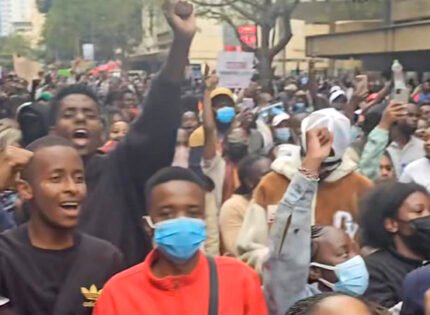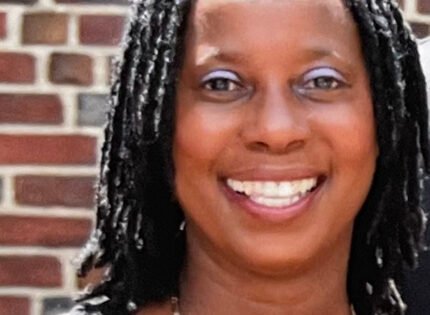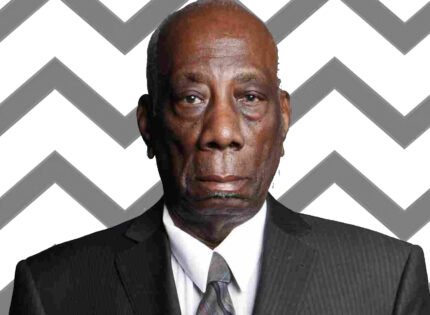Instead of adopting any of the prefabricated labels that are currently used in the political arena, I have chosen to define myself as a rationalist.
What is that you may ask?
Rather than settling for the usual “Whatever?” It simply means that I give truth priority over ideology, and I am a firm believer in following truth wherever it leads, and regardless to whose ox it gores.
 Hence I address every issue on its own merit, based on what is most fair for the greatest number of people.
Hence I address every issue on its own merit, based on what is most fair for the greatest number of people.
The term BIPOC recently reared in its head in a conversation among some so- termed erudites. When I inquired of the average Black person exactly what the term means, responses ranged from “Bipoc” what is that?, Bi-what?, and even Bi-Who?
BIPOC– Black, Indigenous and People of Color. The more I see the term, the more I wonder who created it and why.
The fact that many members of the Black community are not very familiar with the term, although it is used across the country in political circles speaks volumes
as regards Blacks and any likely collective embracing of the term.
According to Cynthia Frisby, a professor of strategic communication at the Missouri School of Journalism. “As a phrase, “people of color” dates back centuries — it was first cited in The Oxford English Dictionary, with the British spelling “color,” in 1796 — “and is often abbreviated as POC. The other two letters, for black and Indigenous, were included in the acronym to account for the erasure of black people with darker skin and Native American people. The “black and Indigenous” was added to kind of make sure that it was inclusive.”
https://www.nytimes.com/article/what-is-bipoc.html/.
“We understand that under colonialism African and Indigenous people had very different experiences,” said Dr. Charmaine Nelson, former art history professor at McGill University. “To conflate everything in one is to erase, which is the very nature of genocidal practice.” https://www.blackcanadianstudies.com/charmaines_news/
On the surface while the applied term may give Blacks the impression of an all-inclusive compromise, especially those who oppose the broad references to people of color towards Blacks, the fact nevertheless remains that the term BIPOC, is yet another broad-based nomenclature intentionally used by politicians and policymakers to water down the ills that plague our community so that they do not appear as bad as they actually are.
Point is that when you really start to analyze the numbers, one thing is constant: the numbers look much different when you remove or separate Black people from people of color.
When considered in isolation, the statistics related to imbalances for Blacks in Canada jump off the page and usually indicate a problem that needs to be addressed right away. While the numbers for people of color, which usually look much better, might indicate something of concern, but fall more in line with “let’s just monitor the situation” for a while and see if it gets any worse.
This is especially true when one must take into consideration that people of color can now include Asians, Middle Easterners, Latinos and Filipinos.
You don’t have to look very far to see that these groups in and of themselves present disparities when it comes to “People of Color.”
In some cities across the country, (especially in Montreal the Faubourg (French for “suburb”) of St. Antoine — a neighborhood that is now known as Little Burgundy), are areas that were historically inhabited by African Americans currently under “redevelopment” or gentrification.
Walking down the streets of these historic neighborhoods, there are businesses owned and operated by people of color, but very few owned by Blacks. When you look at unemployment rates, analysis of the numbers shows a similar trend with Blacks showing the highest unemployment rate.
I could continue writing about other disparities that exist, but
hopefully by now you have gotten the intended message.
As a community we cannot effectively advocate for ourselves if we do not utilize knowledge and information that is truly representative of the realities of our existence.
We cannot allow policies based on a misrepresentation of facts to dictate our plight in Canada and the future of our children. The time has arrived for community leaders and advocates to push back when presented with the all-inclusive umbrella of BIPOC communities, and how policymakers are making a difference as it relates to “people of color”.
Asians advocate for Asians and Asian issues; Latinos advocate for Latinos and Latinos issues; so why, when it comes to Black folks, are we and our issues put into an all-inclusive category.
The issues are not all-inclusive when it comes to who is being shot and killed by police; the issues are not all-inclusive when elderly Blacks are disparately suffering from health issues especially during the pandemic compounded by years of environmental racism. The issues are not all inclusive when it comes to who is being pulled over by police more often than others.
These are examples of things that happen to “Just Us” and often have us looking for the Canadian fallacy of “Justice For All” in a legal system that hardens more criminals than it reforms.
This message is in no way intended to separate Blacks from other groups that are suffering in many ways, but rather a clarion call to action for Black folks in this country to stand up and be vocal about our issues and to get others to truly see how these issues impact Black people and our communities.
The numbers do not lie, and regardless of what color glasses you put on, when it comes to the plight of Blacks in this country, we will continue to get
the short end of the stick if we allow policymakers to only look at the rosy side of the bush, and blatantly ignore the thorns that are attached to the stem.
The Good Book clearly states that there is a time and a place for everything, and I am of the firm resolution that now is not the time to let the term BIPOC define who we are and what we do.
Aleuta continua——- The struggle continues.














